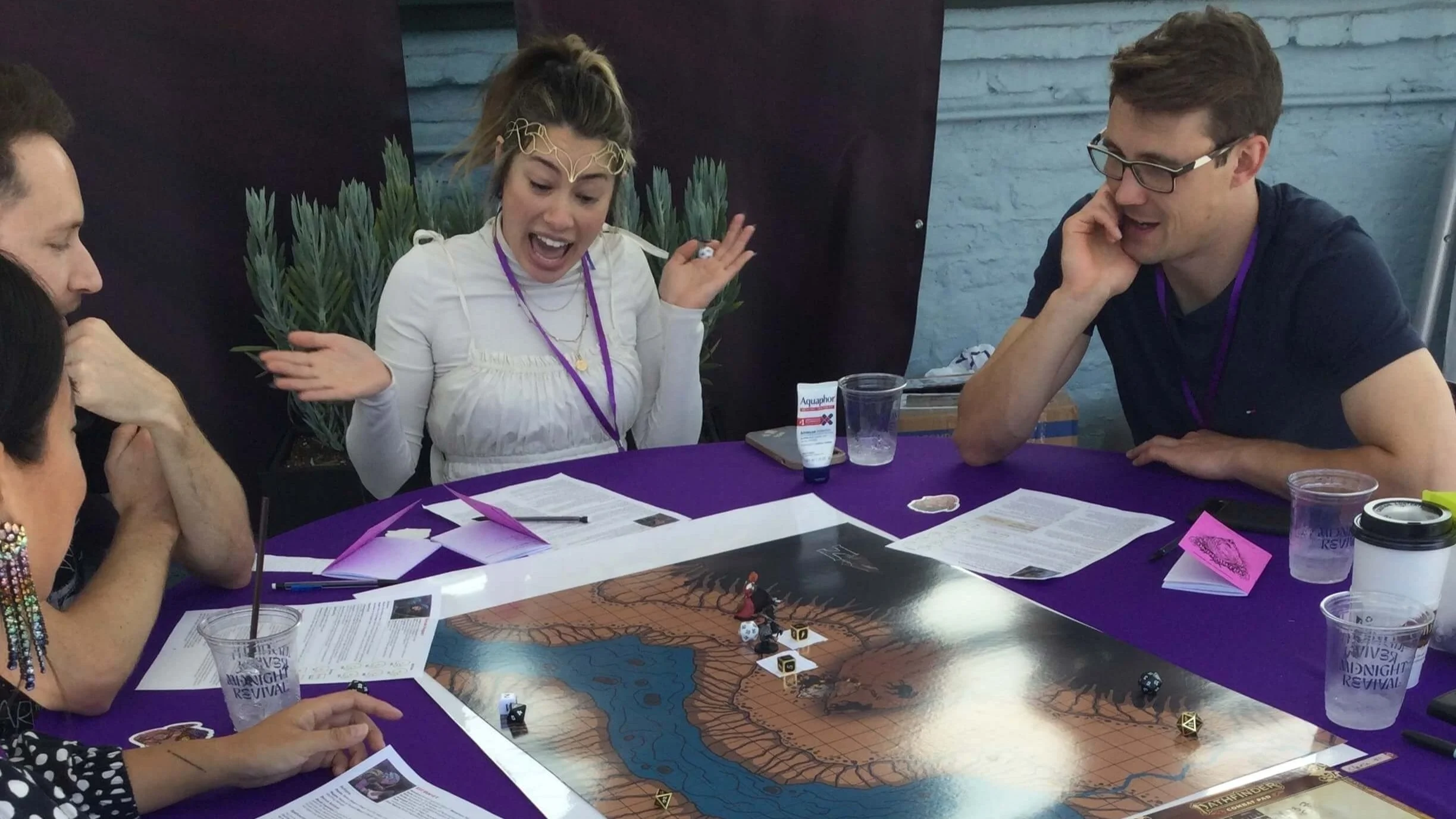10 Essential Tips for Teamwork in DnD Campaigns
Key Highlights
Effective teamwork is crucial for success in Dungeons and Dragons campaigns, maximizing party synergy and fun.
Understanding character roles, clear communication, and strategic planning are all vital for overcoming challenges.
Embracing a collaborative mindset, celebrating achievements, and learning from mistakes enhance team cohesion.
Dungeon Masters play a critical role in fostering teamwork by designing engaging encounters that require collective effort.
By implementing these tips, both new and experienced adventurers can enjoy a more rewarding and enjoyable DnD experience!
Introduction
Dungeons and Dragons is more than just hunting monsters and collecting treasure. It is a social game that relies on teamwork. Just like in real life, the connections and plans made in a DnD group can decide if an adventure succeeds or fails. This blog post will share ten important tips for building teamwork in your games, enhancing your success and enjoyment even in the most daunting challenges.
Top 10 Tips for Effective Teamwork in Dungeons and Dragons Campaigns
Think of your DnD party as a well-made set of gears. Each gear stands for a player character and has a special job. When these gears work together, everything runs smoothly. However, if one gear is not in sync, the whole machine can struggle.
These tips will help you keep your party's gears aligned. This way, you can increase your chances of success while having a great time. By focusing on communication, knowing each other’s strengths, and working together, you can change your DnD games from random chaos into meaningful, epic stories that you'll never forget.
1. Establish Clear Roles within the Party
A good DnD party is made up of several defined party roles. It's key for you to know the role of your player character. Are you a tank, a healer, a damage dealer, or a support class?
Talk openly about what each player character can do. For example, a brave fighter might take the lead against foes. A helpful cleric could heal. A charming bard could be the go to for the party's social interactions.
When everyone knows their role, it makes the party stronger. This clarity stops roles from overlapping too much and leads to better teamwork. When each player feels confident in their job, the whole group can face challenges together.
2. Communicate Goals and Strategies Before Each Session
Before entering a dungeon or facing a scary beast, it's important to talk. Discuss your character's personal goals for the game and how they connect to the team's main goal.
Talking about strategy is as important as knowing the game mechanics. Think about the challenges you may face and share ideas on how to handle them. Should you go for a sneaky approach, talk things out, or charge in full force?
Good communication makes sure everyone understands the plan. This helps avoid confusion and boosts the chances of success. A clever plan can fall apart if the team does not understand it, or if some of them are ill suited to the task. You wouldn't take a stealthy approach when half your party is wearing heavy, noisy plate armor!
3. Leverage Each Character's Strengths
A group with different strengths can give the best chance for success. It's important to help your fellow players show off their character's special skills, and create chances for them to shine.
For example, if there is a tough lock blocking the way to treasure, let the rogue step up and take charge. If there's going to be a negotiation with a strong NPC, let the bard use their charm and wit to lead the discussion.
When you notice and make the most of everyone’s strengths, you can get past challenges more easily. More importantly, this makes every player feel important and useful.
4. Encourage Problem-Solving as a Group
Dungeons and Dragons often presents challenges that need creative solving. Instead of letting one player character make all the choices, encourage everyone to join in brainstorming together.
Invite all players to share their ideas, even if they sound silly. Sometimes, unexpected ideas may actually be the best courses of action. The dungeon master may even reward clever and team-based thinking.
Keep in mind that DnD is not a single player game, and you will never be able to handle every challenge yourself. When you face problems as a team, you benefit from every member's skills and abilities. This teamwork can increase your chances of coming up with new and effective solutions.
5. Implement a Leader for Decision-Making
Having a leader can make making decisions easier, especially when time is tight. It's helpful but does not need to be a strict or lasting role.
The role of party leader can change based on what is happening and what the dungeon master suggests. For example, the warrior can step up in fights, while the wizard can take the lead when it comes to using magical skills.
This way, the group has clear guidance during important times. It also lets everyone share their talents as leaders whenever needed.
6. Balance Individual Character Development with Team Objectives
In DnD, character development is important for each player. However, it's just as vital that these personal goals fit with the team’s main objectives. When players balance their own stories with the group's mission, everyone enjoys the game more.
Talk with your group about how personal goals can link to the main storyline. This helps create a story where individual characters grow while still moving the party forward.
Having a common purpose builds connections among players. It makes each person feel like a key part of the adventure. Keep in mind that the best stories mix personal journeys with a shared aim.
7. Practice Conflict Resolution Among Characters
Conflicts happen within the party too. It is important to handle conflict resolution well among characters. This keeps arguments from ruining the game.
In-character roleplaying is key. Characters should talk things out and find a middle ground, just like adventurers do in a fantasy world. Otherwise, this can lead to issues when teamwork is at its most essential.
If conflicts become too serious, the dungeon master can step in. They offer support and make sure everything is fair. Disagreements will always come up, but handling them in a positive way makes the game even better.
8. Share Resources and Information Freely
Hoarding potions or hiding valuable information creates distrust and makes playing together harder. It's important to promote a culture where everyone shares resources in your DnD group. Think about how a team of adventurers must depend on each other to survive.
When it comes to resources, the best approach is to give them based on what each person needs. This way, everyone can work together to ensure success. It's also helpful to share information, especially about the quest or any dangers that might come up.
A strong adventuring team relies on trust and teamwork. Sharing what you have and what you know shows these qualities. It also helps build closer relationships among the characters.
9. Celebrate Individual and Group Achievements
Take time to celebrate achievements, no matter how big or small. This could be a critical hit that saves the day, solving a tricky puzzle, or defeating a tough enemy. Celebrating these moments is important for individual growth, as well as team dynamics.
Make sure to recognize what each person does, but also highlight how they work together. A fun cheer, some applause, or a group toast while in character can really lift everyone's spirits and strengthen team morale.
Celebrating both individual successes and group wins makes the DnD game more fun and memorable for all players. It helps create good feelings and brings everyone closer together.
10. Review and Reflect on Team Performance After Key Campaign Events
After big events or important moments in your campaign, take some time to review and reflect on how the party did. This helps everyone get better and brings the team closer together.
You can consider these questions to help with your reflection:
What strategies worked well and what can we improve?
How good was our communication and decision-making?
Did we use each character’s strengths in a smart way?
By talking openly about these points, you can find areas for growth. This will help you refine your tactics, and will make sure your next adventure is even more successful and fun than the last one.
Understanding Different Player Types and Their Contributions
In DnD teams, we often see various player types. Each person has their own way of playing and reasons for joining. Knowing how these dynamics work can help everyone talk better and enjoy the game together.
Some players love combat and aim to deal as much damage as possible. On the other hand, some focus on roleplaying. They enjoy discovering their character's motivations and story within the game world.
These differences might cause issues at times. However, having a mix of playstyles can make the game more exciting and interesting. It's always important to talk about everyone's motivations, and how they might affect the game. For instance, evil characters might make for good stories, but their selfish or chaotic nature might negatively impact the party's performance.
The Role of the Dungeon Master in Fostering Teamwork
The dungeon master plays an important role in creating teamwork among players. The DM sets up challenges and scenarios that encourage player characters to work together.
They might include tasks that need different skills. For example, a locked door could need a rogue's skill with locks and a wizard's magic knowledge. This makes players rely on each other's strengths from the start.
The DM may even weave these tasks into stories that are tied to multiple characters. By working together, multiple players may find that their backstories are intertwined, leading to further bonding and reliance on eachother.
Conclusion
In conclusion, strong teamwork in Dungeons and Dragons games is key for a fun and impactful time. Your team can face challenges and succeed, but only if they do so together. No single character can make it by themselves. By combining your skills and strategies, you will build a strong DnD team where everyone adds something special. For more help with team dynamics and to get answers to questions, think about a free tutorial to improve your DnD campaigns.
If you are a new player wanting to learn how to play DnD, schedule a free, 1-on-1 tutorial with us! We’ll have you rolling dice and slaying monsters in no time.
Frequently Asked Questions
How do you balance character strengths in a diverse DnD team?
In a diverse Dungeons and Dragons team, balance is key. The best way to ensure balance is to check with your party members before you start a campaign to make sure people aren't overlapping roles. Everyone want's to feel necessary and useful, and too much overlap can lead to competition and redundancy
What are some effective communication strategies for DnD teams?
Effective communication strategies for DnD teams are important. You should plan before each session to talk about goals. Use in-character dialogue while playing, and think of abilities and spells you might be able to use to further your communication or teamwork.




